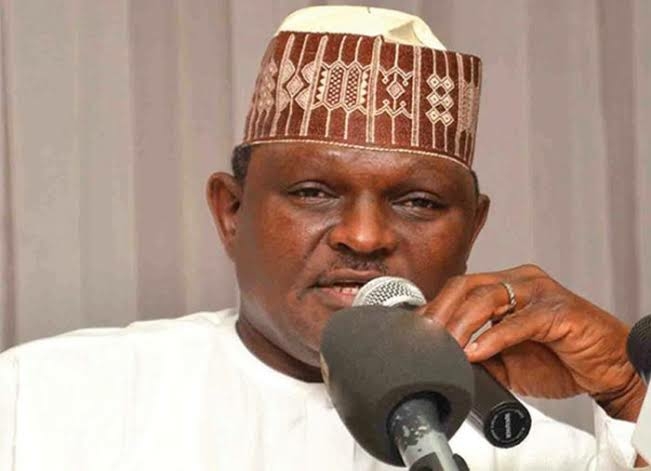Maj. Hamza Al-Mustapha, the late Military Head of State, Gen. Sani Abacha’s Chief Security Officer (CSO), has advocated for stronger collaboration between Nigeria and other border nations to address insecurity in the country.
This call was made by Al-Mustapha on Tuesday during the first National Launch of Kick Peace Nigeria by the International Association of World Peace Advocates in Abuja.
According to him, the nation’s insecurity is concerning, and he believes that unless the root causes are identified, using the military and force will not suffice to alleviate the situation.
He also emphasized the importance of stakeholders, particularly the government and the media, engaging in peace education, sustenance, and promotion in order to achieve success.
“Some of the solutions that the government is investing heavily in today’s threat containment, such as using the military or using force, are insufficient.”
“Education, mobilization of the people, mobilization and education of youths, which is peace education, peace sustenance, and peace promotion not only in Nigeria, but also in collaboration with other African countries that surround Nigeria.”
“If we can look at some other barriers and remove them, if we can come together and ensure that many immigration issues are reduced, we will be able to see many threats that permeate in between.”
“The media should look inward and look at the threats; the role of the media is peace education or peace enlightenment and peace sustenance, which requires periodically reawakening the people to the existence of threats and what is expected of citizens,” he said.
Mr John Shishi, a Senior Lecturer at Nassarawa State University’s Department of Law, while condemning the effects of insecurity in the country, called for the implementation of strategies aimed at achieving peace in the country.
Shishi noted that, in practice, separating the state from religion, resetting Motives Values and Preferences (MVP), practicing true federalism, good governance, and an efficient tax system, among other things, would help.
He also emphasized the importance of reforming the security structure, strengthening border security, and implementing an inclusive security strategy to address the country’s insecurity.
Mrs Amina Temitope-Ajayi, popularly known as “Mama Diaspora,” for her part, emphasized the importance of peace and justice as a panacea for Nigeria’s long-term development.
Temitope Ajayi, who was named Eminent Peace Ambassador, stated that the country’s insecurity had necessitated the need to rethink the concept of governance in Nigeria in light of its role in ensuring security, long-term peace, and justice.
“Factors that contributed to insecurity include a lack of transparency and accountability, as well as a situation in which some ethnic groups feel marginalized.”
“Others include religious intolerance, electoral malpractice, mismanagement of funds, a high level of unemployment, and a disregard for the rule of law, to name a few,” she said.
As a result, she advocated for reducing reliance on oil revenue, ensuring transparency and accountability for good governance, and ensuring that electoral processes are free, fair, and credible, as well as creating job opportunities to address challenges.
Other highlights of the events included the presentation of eminent peace awards to notable Nigerians for their contributions to peacekeeping and addressing insecurity in the country.
Representatives from other countries, including South Africa, the Central African Republic, the Niger Republic, and Cameroon, were also present.

















Discussion about this post